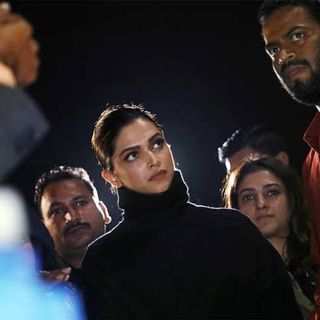The nominations for 2020’s 92nd Academy Awards were announced Monday, and despite past pledges to improve diversity, the nominees were overwhelmingly white and male. More specifically, according to a New York Times calculation, the nominee tally was 68% male and 84% white.
Still, this is marginally one of the most inclusive nominee lists Hollywood has ever seen, following the Academy’s 2017 membership overhaul, which involved inviting 800 new members representative (though not equally) of various races, genders, geographies, and ages. Of the 800 new members, 39% were women and 30% were not white. Despite this, in the following year, 2018 — the year expected to be a statement on diversity — Oscar nominees were 72% male and 87% white. So, two years later … #progress?
Not really.
Even if women and people of color could be satisfied by the achingly slow pace of inclusive recognition, the fact that the few nominations bestowed on them seldom translate into actual wins remains. Only five women in history have ever been nominated for best director; only one woman (Kathryn Bigelow, Hurt Locker, 2008) has ever won.
This speaks to two related problems — first, the tacit bias that certain roles and jobs are appropriate for certain people, and hence, the limited opportunities available to them. Women directors break the traditional association of maleness with that role — and thus must work doubly hard to be recognized, both in day-to-day filming efforts and in major awards. They also have far fewer opportunities; for instance, the percentage of directors of the 250 top-grossing films of the year who are women dropped from 11% to 8% between 2017 and 2018.
Related on The Swaddle:
In Hollywood, Women Stars Earn US$ 1 Million Less than Male Peers
Which is why it’s such a slap in the face that Greta Gerwig — whose Little Women this year has netted six Oscar nominations, including one for Best Picture — is not included in the running for Best Director. And why it’s another slap in the face that Lupita Nyong’o, who won Best Actress in 2013 for portraying a slave in 12 Years a Slave, was snubbed for her acclaimed performance this year as a woman haunted by her past in the horror film Us. Meanwhile, the sole black nominee (man or woman) — Cynthia Erivo, the star of Harriet, who already has Emmy, Grammy, and Tony wins under her belt for other performances — has been nominated for an Oscar for the first time…for playing a former slave-turned-abolitionist. Even as opportunities for actresses expand to include meatier roles and women-centric plots, thanks to competition from streaming services, the roles available to actresses of color have not expanded as quickly — nor has the progress that has been made been recognized.
“It’s not enough that I’m the only one. It just isn’t,” Erivo told the New York Times. “Far too much work was done this year by incredible women and men of color that should be celebrated.”
Even as Antonio Banderas — the only nominated Latino — and the South Korean movie Parasite nabbed high-profile nominations, some of that snubbed work that Erivo might be referring to includes not only that of Gerwig and Nyong’o, but also of Jennifer Lopez, for her role in Hustlers; of Eddie Murphy, for Dolemite Is My Name; of Awkwafina, for The Farewell. As for direction, some potential high profile nominations could have been Melina Matsoukas, for Queen & Slim, Lorene Scafaria for Hustlers, and Lulu Wang for The Farewell.
Some on social media have revived the hashtag #OscarsSoWhite, a movement created by April Reign in 2015 to highlight the lack of diversity in the film industry and its major awards. But Issa Rae, who helped announce this year’s nominee list, said it best when she deadpan-announced the list for Best Director: “Congratulations to those men” — yet again.
Issa Rae gives the best reaction after not a single woman was nominated for Best Directing at the 2020 Oscars. #OscarNoms
pic.twitter.com/pIuyPZQ3GJ
Issa Rae announces the all-male list of best director nominees for the 2020 Academy Awards — and reacts to it.




